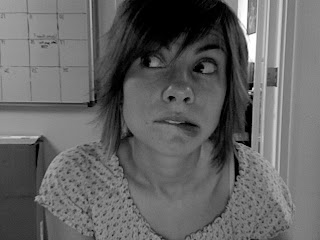
Title: A House for Mr. Biswas
Author: V.S. Naipaul (Sound familiar? He should, if you're a faithful reader... and if you're not, get out of here! I don't need any fair-weather fans!!)
Judgin' the Book By Its Cover: I love this bright, splashy cover! It captures the essence of the vibrant island of Trinidad far more than the book does, which seemed like it could have been set almost anywhere (my book cover, courtesy of NYPL, was a plain, red, cloth cover... not too exciting). I got a much stronger sense of place about Trinidad from a few short pages in Netherland.
Thoughts: A House for Mr. Biswas narrates the struggles of an Indo-Trinidadian man to gain independence through home ownership.
Mohun Biswas, a character reportedly based on Naipaul's father, is born unlucky and, after his father's untimely death, is plagued by bad decisions, poverty, overbearing in-laws, and unsatisfactory employment. In this regard, he is something of an everyman; there is a universal element to the trials and tribulations that he faces. It was often very frustrating to read about Mohun's exploits; like a lovable loser uncle, nothing he does seems to turn out right and he's a magnet for scam artists. However, he's also an incorrigible troublemaker, and his insistence on standing up to pushy family members was at times the only thing that kept me reading.
Naipaul presents a thoroughly descriptive portrait of Mohun Biswas, and I really felt like I knew him through and through, especially since the book covers his entire life, from cradle to grave. It was a masterfully written story, but its bleakness and pessimism were sometimes hard to swallow. Naipaul presents in this story the tragedy of human existence, the oftentimes fruitless struggle to leave your mark on the earth and to overcome miscalculations and blunders. As a result, it wasn't the most enjoyable read, but it was truthful and timeless.









